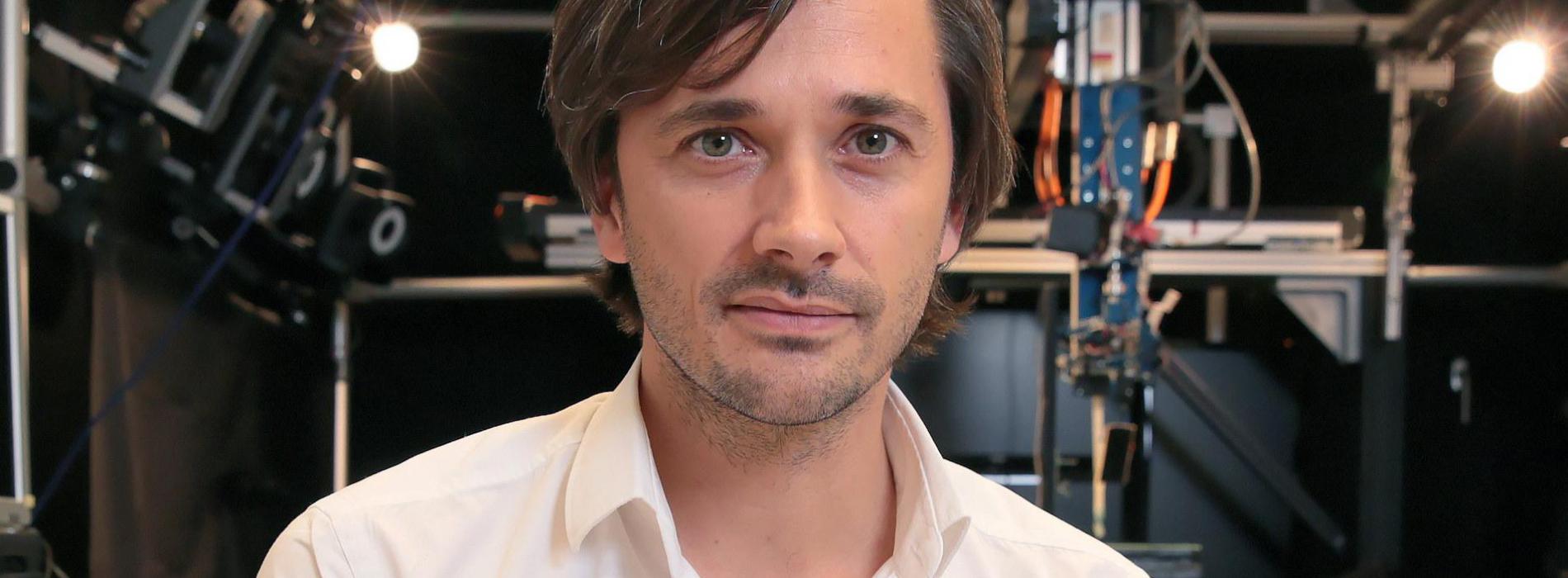
 News
News
Grégoire Courtine wins the IET A F Harvey Engineering Research Prize
Grégoire Courtine, a neuroscientist and EPFL researcher at CampusBiotech, has been awarded the IET A F Harvey Engineering Research Prize – the most valuable prize of £350,000 (CHF 420,000) given out by the Institution of Engineering and Technology (IET). Courtine will use the funding to further his research on spinal cord regeneration. Several paraplegics have already regained the use of their legs thanks to his work.
The video made its way around the world in late 2018: an athlete who was left paralysed from the waist down by a trampoline accident gets up from his wheelchair, speaks a command into a smartwatch, and starts walking on his own with the help of a walker. This breakthrough was a proud moment and the culmination of over a decade of research by Courtine, a professor at EPFL, the Lausanne University Hospital (CHUV) and UNIL in Switzerland. His work looks specifically at spinal-cord dynamics and how the spinal cord develops after an injury. In 2012, he enabled paralysed rats to walk again by administering a combination of electrical stimulation of the dorsal aspect of the spinal cord and pharmaceutical agents. Six years later, Courtine and Jocelyne Bloch, a neurosurgeon at CHUV, repeated the feat on three human patients with flexible electrodes they had developed and surgically implanted. Today, 10 patients can use their limbs again thanks to this approach.
But that’s not all. While their therapy restored patients’ voluntary motor function, it also triggered a natural regeneration of their nerve fibres. “We saw that after being stimulated by patients’ voluntary muscle movements, the nerves began to grow again spontaneously. Little by little, they bypassed the diseased tissue and carried electrical signals from the brain to the muscles,” says Courtine.
Of course, the research efforts have continued since that milestone in 2018. Courtine and Bloch are now focusing on further improving their technology for lower limbs usage recovery and expanding their therapy so it can be used with other types of paralysis. “By drawing on the in-depth understanding of neural mechanisms that we have obtained over the past 15-plus years, we can extend our findings to other applications – in particular the cervical spinal cord,” says Courtine. “The IET A F Harvey Engineering Research Prize will allow us to further broaden the scope of our research.”
“The work of Professor Courtine and his colleague is nothing short of phenomenal and showcases the life-changing application of world-leading medical engineering and research”, says IET President, Professor Danielle George MBE. “The IET A F Harvey Engineering Research Prize supports the world’s best scientists and engineers to advance their research. We are excited to see how Professor Courtine uses the funding to continue to push the boundaries of spinal cord regeneration and its reward in helping even more people suffering with severe paralysis – he is one of the world’s greatest difference makers.”
https://actu.epfl.ch/news/gregoire-courtine-wins-the-iet-a-f-harvey-engine-4/